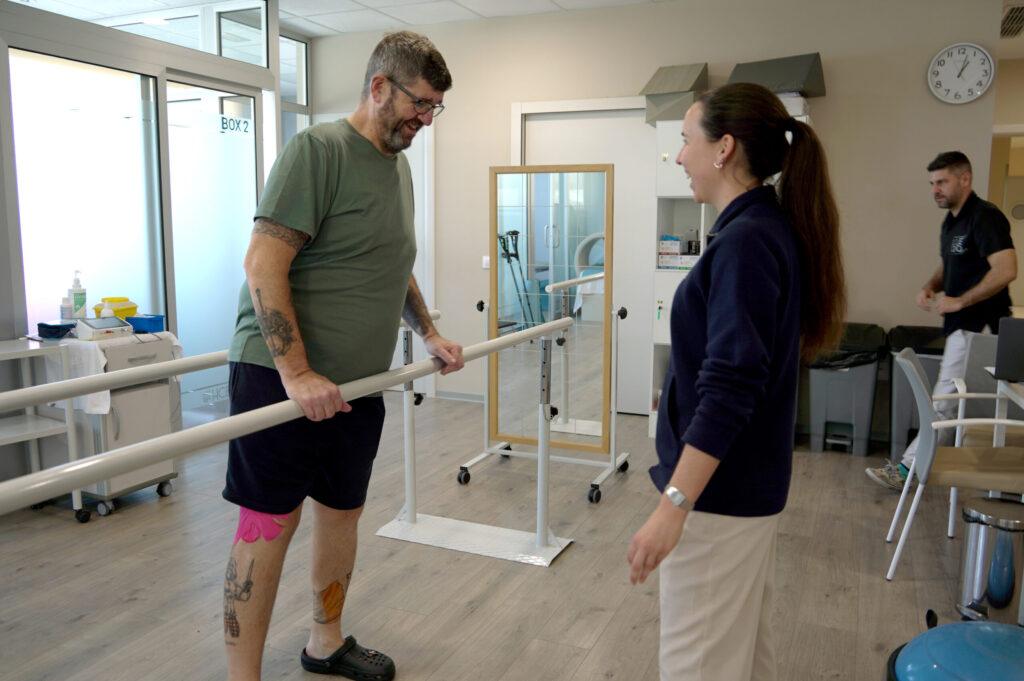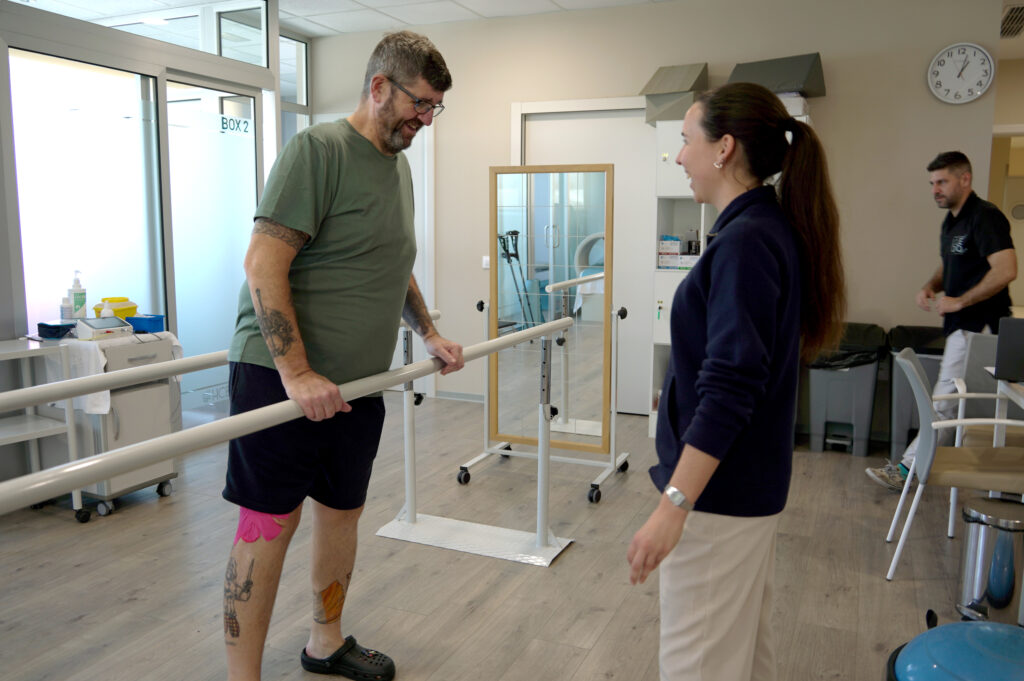
Physiotherapy is often associated with recovery after surgery or injury. While that is certainly an important part of it, there is another equally valuable approach that is often overlooked: preventive physiotherapy. This discipline focuses on preventing injuries, maintaining optimal mobility, and ensuring long-term health.
For adults between 40 and 60 years old, preventive physiotherapy is especially relevant. During this stage of life, the body undergoes natural changes: muscle mass gradually decreases, joints become stiffer, and recovery after exertion slows down. If left unchecked, these changes can lead to chronic pain, injuries, and limitations in daily activities. Physiotherapy helps people remain active, independent, and healthy well into older age.
What is Preventive Physiotherapy?

Preventive physiotherapy is the proactive branch of physiotherapy that aims to detect risks early and strengthen the body before problems arise. It includes thorough assessments, tailored exercise programs, mobility training, posture correction, and lifestyle education.
The main goal is to provide patients with the right tools and guidance to keep their bodies resilient. Rather than waiting for pain or injury to appear, preventive physiotherapy helps to reduce the chances of developing conditions such as back pain, arthritis, tendonitis, or postural syndromes.
Key Benefits of Preventive Physiotherapy
Back pain, neck stiffness, and knee discomfort are some of the most common complaints among adults over 40. Preventive physiotherapy strengthens supporting muscles, improves spinal alignment, and teaches safe movement patterns to reduce the risk of persistent pain.
Daily stretching and targeted mobility work guided by a physiotherapist can help maintain joint range of motion, preventing stiffness and functional decline.
For adults who remain physically active, preventive physiotherapy is crucial. It identifies weak areas, corrects imbalances, and prepares the body to tolerate stress safely, lowering the likelihood of sprains, tendon injuries, and muscle tears.
Staying physically independent is one of the top priorities for people approaching later stages of life. Preventive physiotherapy supports balance, coordination, and overall endurance, enabling patients to enjoy an active lifestyle longer.
Subtle postural deviations or muscular weaknesses often go unnoticed until they cause significant issues. Physiotherapists can detect these early and intervene with corrective strategies before they become serious.
Back pain, neck stiffness, and knee discomfort are some of the most common complaints among adults over 40. Preventive physiotherapy strengthens supporting muscles, improves spinal alignment, and teaches safe movement patterns to reduce the risk of persistent pain.
Daily stretching and targeted mobility work guided by a physiotherapist can help maintain joint range of motion, preventing stiffness and functional decline.
For adults who remain physically active, preventive physiotherapy is crucial. It identifies weak areas, corrects imbalances, and prepares the body to tolerate stress safely, lowering the likelihood of sprains, tendon injuries, and muscle tears.
Staying physically independent is one of the top priorities for people approaching later stages of life. Preventive physiotherapy supports balance, coordination, and overall endurance, enabling patients to enjoy an active lifestyle longer.
Subtle postural deviations or muscular weaknesses often go unnoticed until they cause significant issues. Physiotherapists can detect these early and intervene with corrective strategies before they become serious.
Techniques and Approaches
- Strength training: Tailored exercises for the core, back, hips, knees, and shoulders, designed to stabilize and support the body.
- Posture training: Correcting daily habits such as sitting, standing, and walking to reduce strain on the spine and joints.
- Stretching programs: Personalized routines to maintain elasticity and avoid muscular tension.
- Manual therapy and massage: Hands-on techniques to release stiffness, improve circulation, and promote relaxation.
- Balance and coordination exercises: Essential for preventing falls, especially in middle-aged and older adults.
- Ergonomic advice: Practical recommendations for workstation setup, sleeping positions, and safe lifting techniques to avoid strain.
By combining these methods, preventive physiotherapy creates a holistic approach that supports the patient’s lifestyle and long-term goals.

Why Preventive Physiotherapy Matters Between 40 and 60
This stage of life is often marked by professional responsibilities, family commitments, and sometimes less time for physical activity. Many adults spend hours sitting at desks, driving, or using digital devices—all of which contribute to postural problems and muscular imbalances.
Moreover, conditions such as osteoporosis, arthritis, and cardiovascular disease often begin to appear silently during these years. Preventive physiotherapy provides an opportunity to counteract these risks proactively. For example, weight-bearing exercises improve bone density, while cardiovascular-friendly routines enhance endurance and energy levels.
Another key benefit is mental well-being. Staying active, mobile, and free of pain reduces stress and boosts confidence, both of which are essential for a high quality of life.
Physiotherapy at Medifit
At Medifit, we believe that prevention is the foundation of long-term health. Our multidisciplinary team works with patients from across Europe to design personalized preventive physiotherapy programs. These programs combine physiotherapy, therapeutic exercise, posture education, and lifestyle coaching.
Whether your goal is to stay active, return to sport safely, avoid recurring injuries, or simply take care of your body as you age, physiotherapy can make all the difference.

Conclusion
Physiotherapy does not only begin when pain arrives—it should start long before. Choosing preventive physiotherapy means taking responsibility for your health today so you can enjoy a future with more freedom of movement, fewer limitations, and a higher quality of life.
If you are between 40 and 60 years old and want to maintain your independence, strength, and well-being, physiotherapy is an investment worth making.

